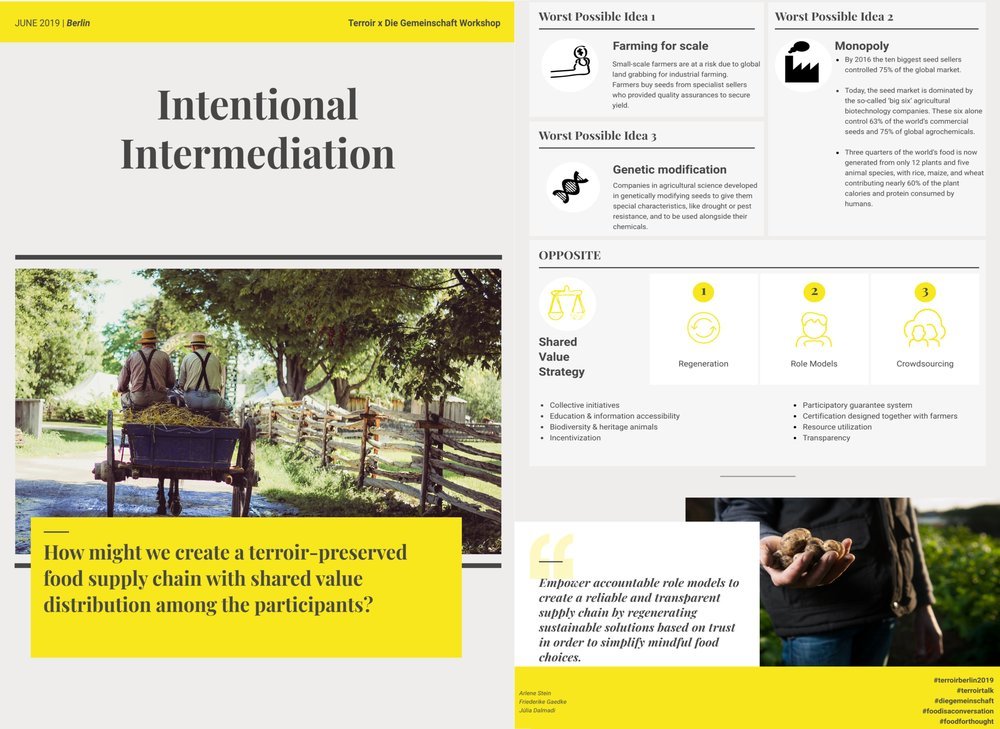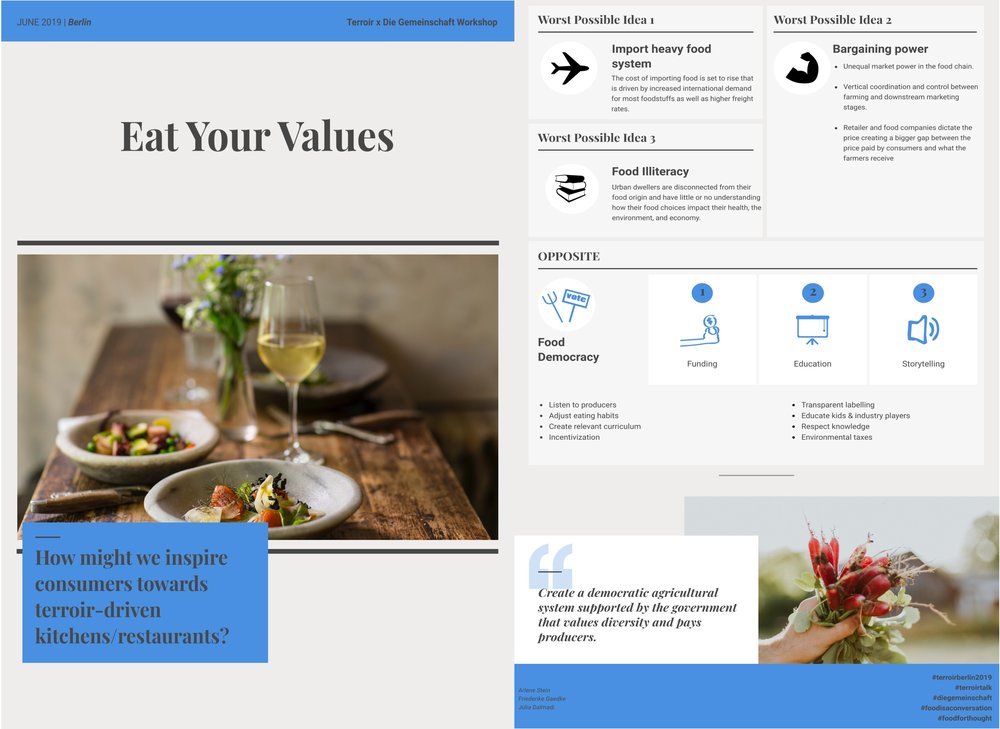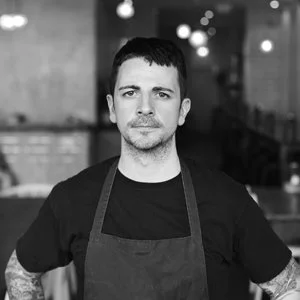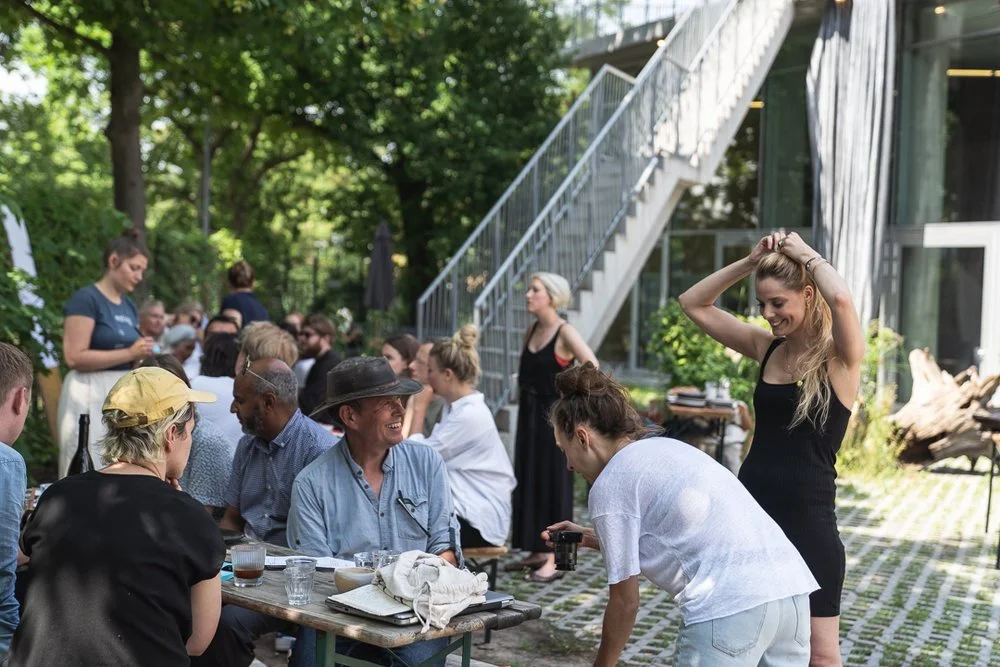
TERROIR BERLIN 2019
LEADERSHIP COMMUNITY COLLABORATION
With a special focus on how to work towards a sustainable food system, this second helping of Terroir Berlin leant on the themes of leadership, community and collaboration learning from international chefs Frida Ronge, Maksut Askar, Flavia Borawska, Roderick Sloan, Dalad Kambhu and Alan Micks.
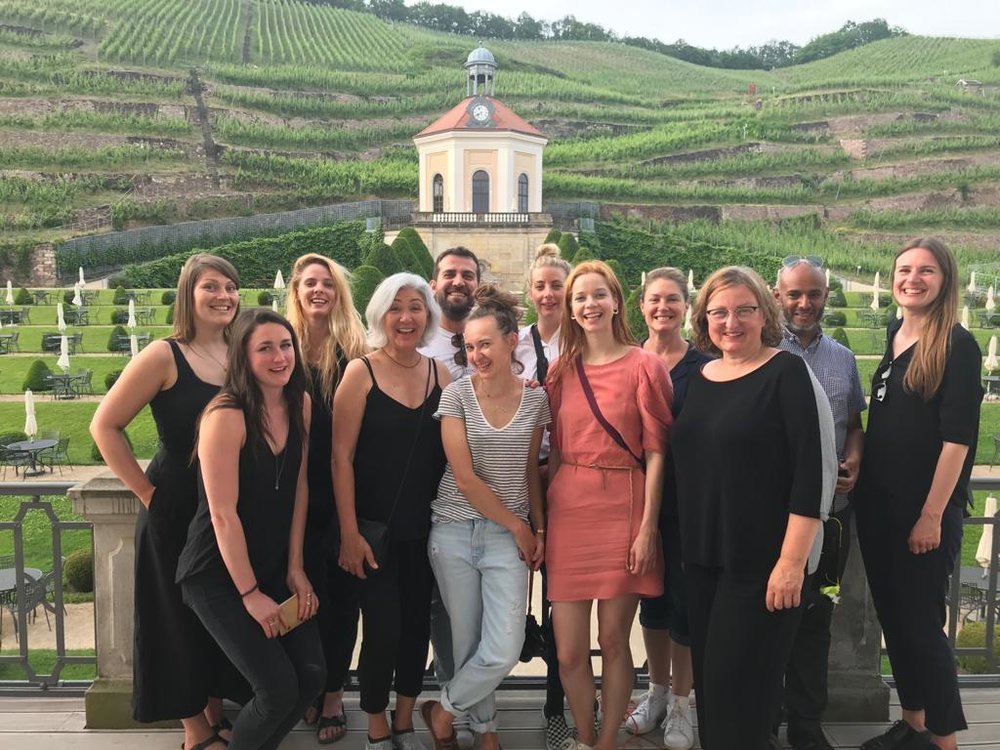
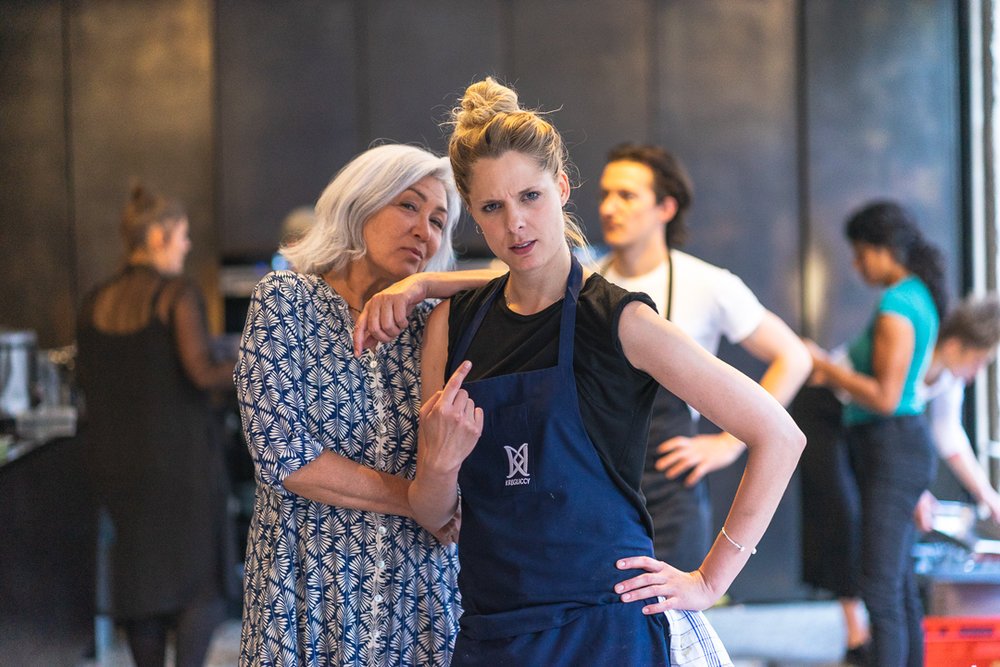
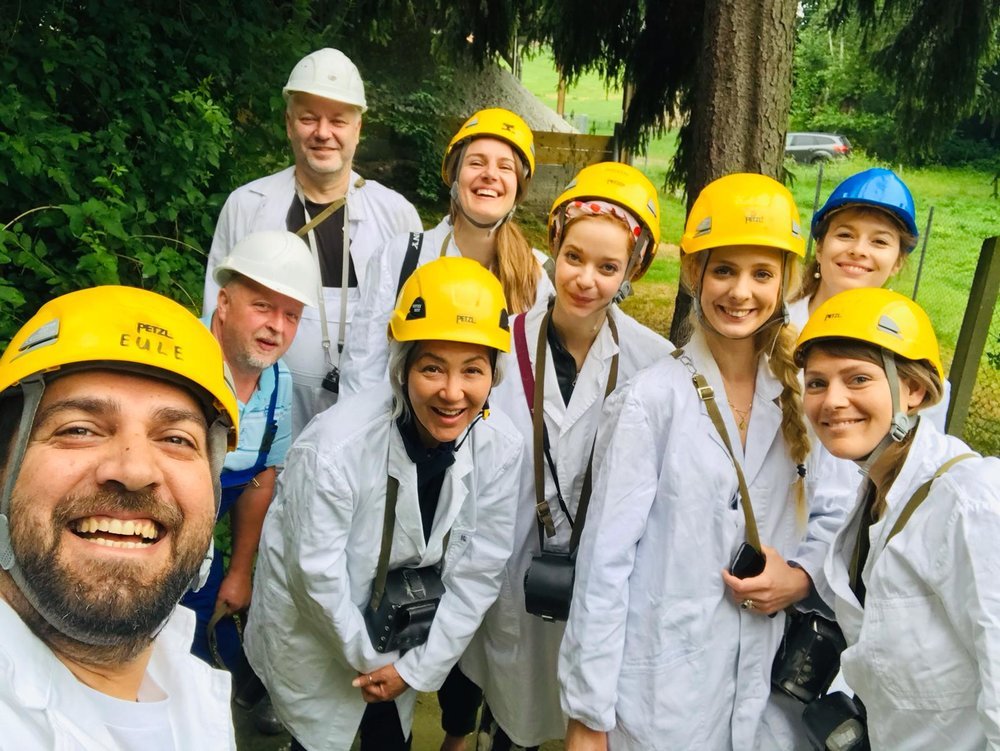


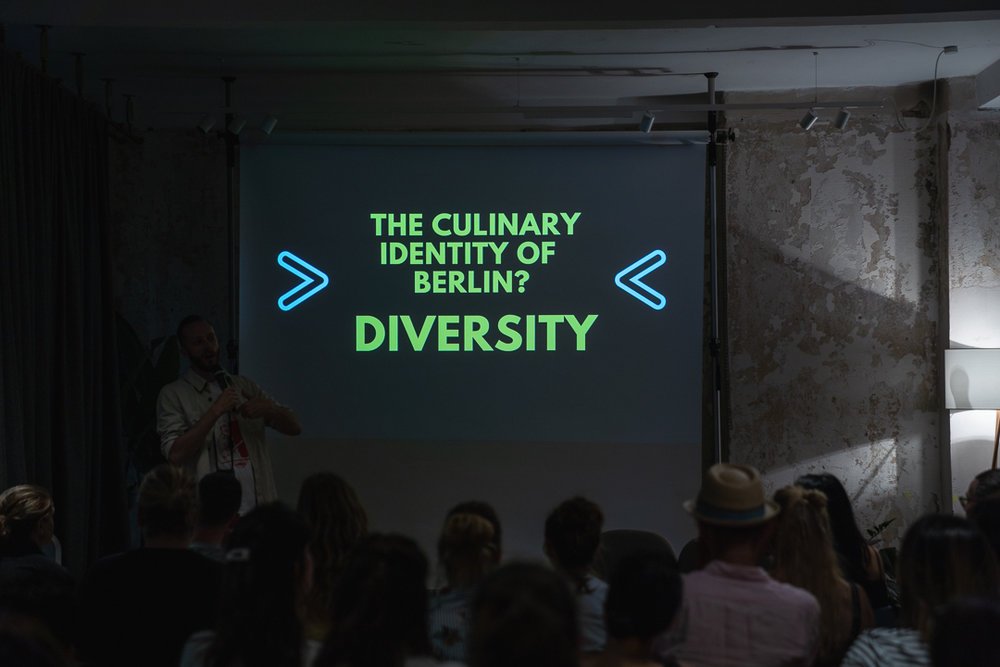
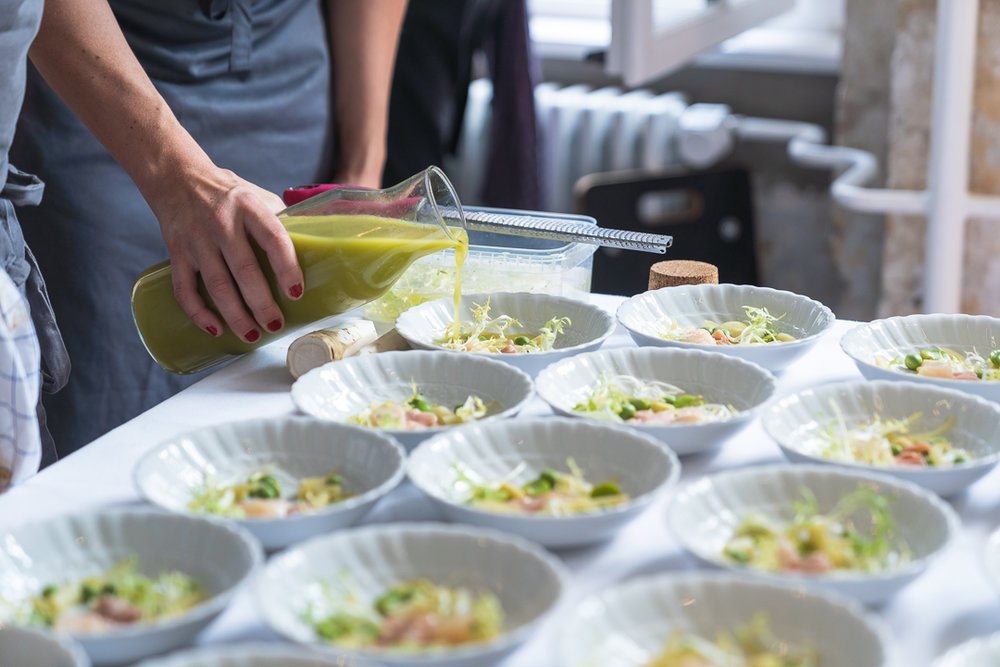
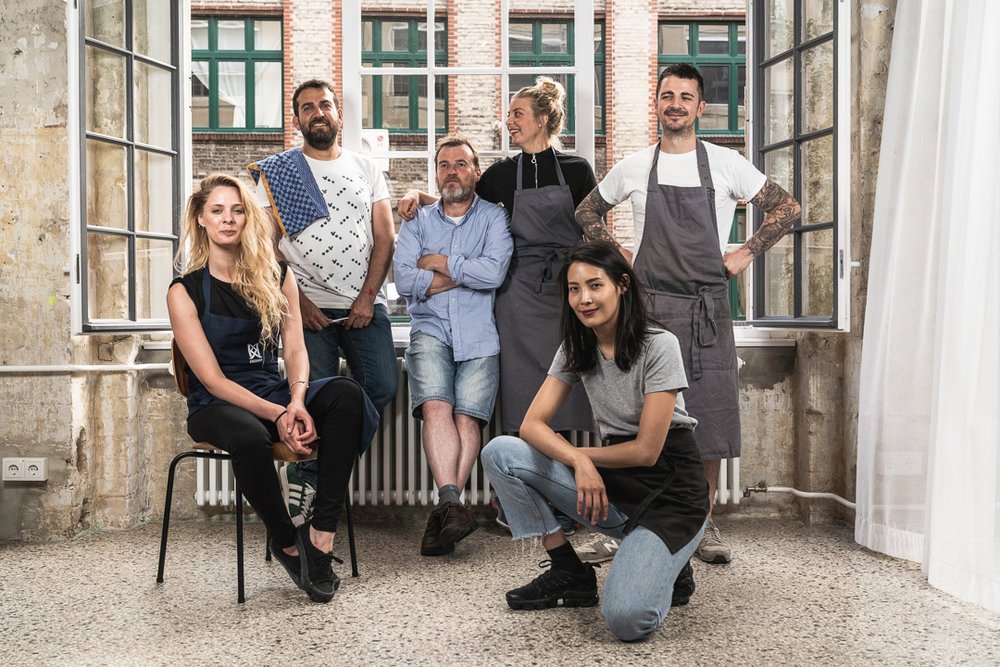
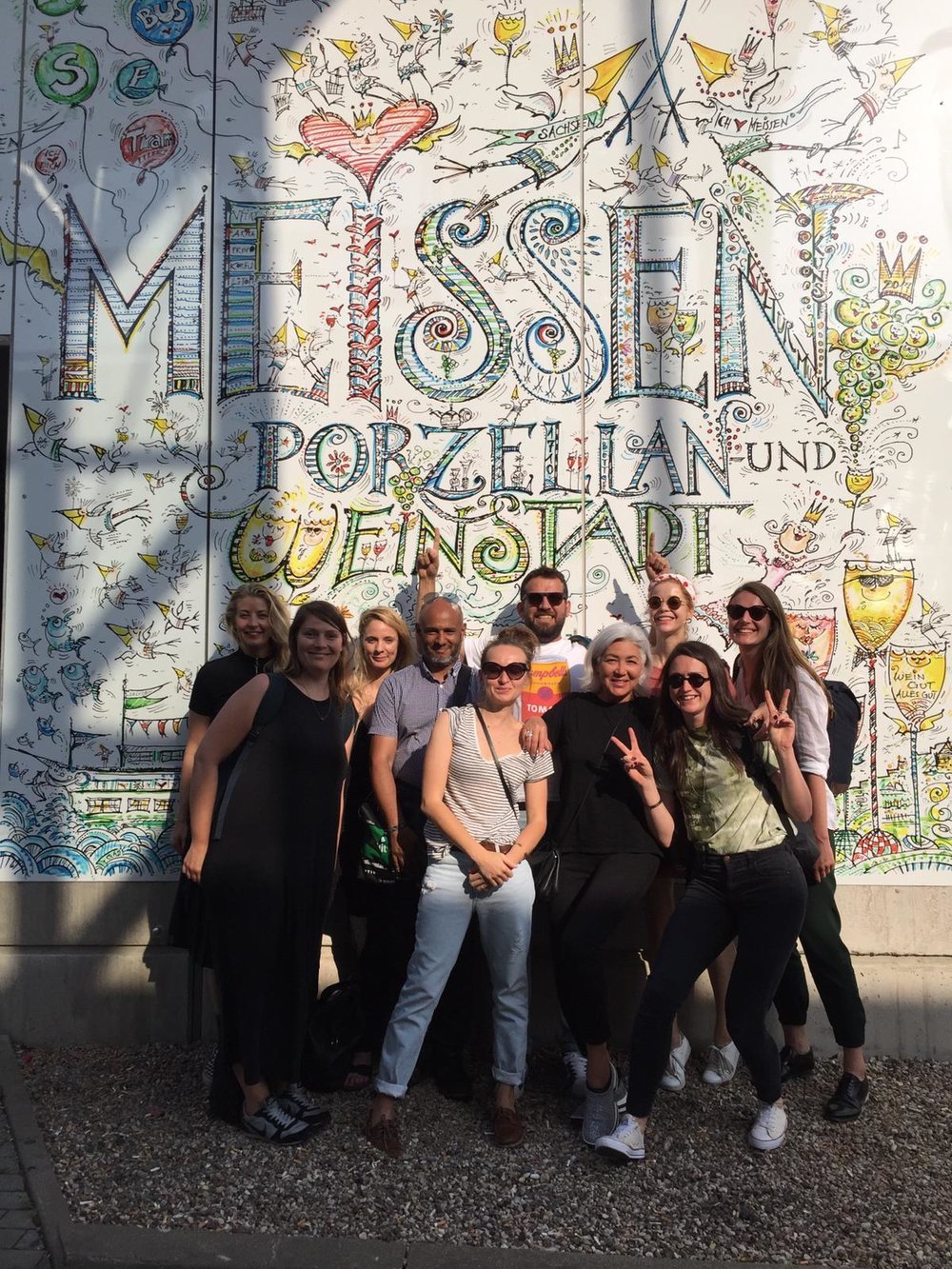
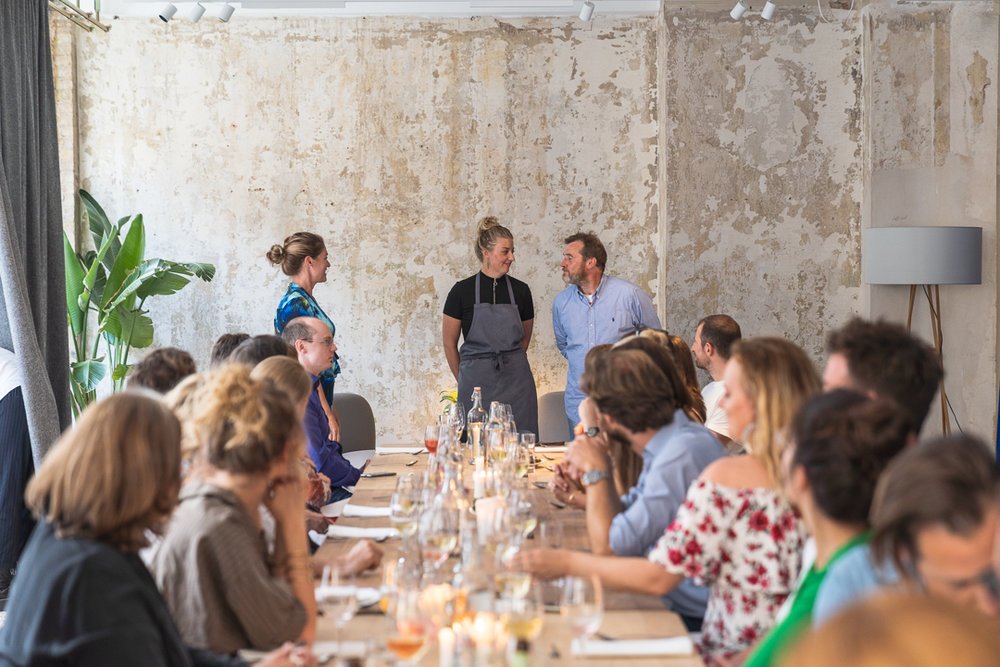
Participants
Design Thinking Workshops
One of the main elements of a resilient food system is a strong community of chefs, producers, farmers and food leaders who actively drive discussions, collaborations, and innovation. For the Terroir x Die Gemeinschaft workshop led by food innovation expert, Júlia Dalmadi, 30 food leaders were hand-picked to use design- & system-thinking principles to address sustainability issues from economic, social and environmental angles.
How design thinking can create a better food system
with food innovation expert, Júlia Dalmadi
“OUR CURRENT FOOD SYSTEM IS COMPLEX AND DOGGED BY THE CONSEQUENCES OF MASS INDUSTRIALIZATION AND OVERPRODUCTION. CHANGING SUCH A ROBUST SYSTEM REQUIRES AGILITY AND DESIGN THINKING IS SIMPLY A HUMAN-CENTRED APPROACH TO INNOVATION.”
Design thinking happens at the intersection of people’s desires, business viability, and technological feasibility. It also takes into account all the inter-dependencies and challenges of a high-impact food system and suggests a new approach.
Using it, multidisciplinary design thinking teams can break down silos and create partnerships between different stakeholders, including farmers, restaurants, policymakers, big players, startups and consumers. The iterative process identifies new needs, insights and eventually leads to new foresights. Understanding the economic, social and environmental impact of these findings helps identify what decisions can be taken today to create the best possible tomorrow.
Design thinking also fosters culinary confidence through empathy, problem definition, idea generation, prototyping, testing and redefining until the best solution is identified. Of course, the successful implementation of this solution requires everyone to understand all relevant problem variables, but by identifying what can either enable or inhibit a solution and then finding the leverage points we can achieve transformational systemic changes.
WORKSHOP QUESTIONS
Environmental: Where food is the problem, food is the solution
How might we encourage chefs and farmers to preserve their terroir by building a zero foodprint system?
Social: Intentional Intermediation
How might we support a terroir-preserved food supply chain with shared value distribution among the participants?
Economic: Eat Your Values
How might we inspire consumers towards Terroir-driven kitchens/restaurants?
